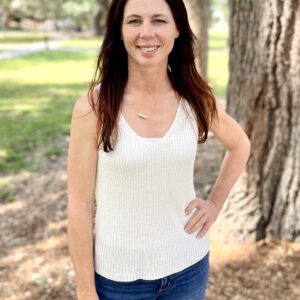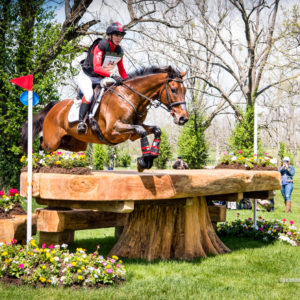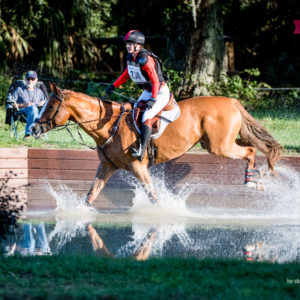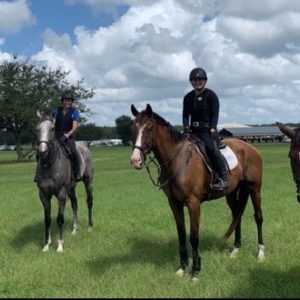Congratulations to Ashland’s own Muhammad Shahroze Rehman for being a 2020 recipient of Eventing Nation’s inaugural Diversity and Inclusion Scholarship! Read his essay contribution here!
AN ESSAY CONTRIBUTION TO THE DISCUSSION OF DIVERSITY AND INCLUSION IN EQUESTRIAN SPORT:
I was 11 years old when I first sat on horseback. I vividly remember every moment of it — the excitement, the passion! It was the most amazing feeling of this world. Hi! I am Muhammad. I love horses and I will give up anything in my life for my passion for horses and equestrian sports.
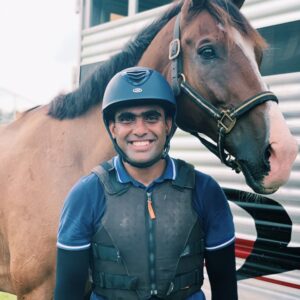
I am a Fulbright Scholar from Pakistan, currently pursuing my Ph.D. in Educational Technology and Human-Centric Computing at the University of Florida. Over the past two years, I have worked with students with disabilities to study the accessibility and usability of online learning for all learners. My current research focus is on the applications of Virtual Reality (VR) in pedagogy for adult learners. I also teach a course on Introduction to Educational technology to undergraduates at the University of Florida. But this is not all that defines me.
I would define myself as a resilient individual chasing his dreams. Coming from a middle-class family in an underprivileged area of Pakistan, I was lucky to get into one of the most sought after and prestigious boarding schools in Pakistan. I was not a very social kid and talking to humans was not one of my strongest pursuits. As I was struggling to find my identity amongst hundreds of other students, I found something amazing — my happy place — the equestrian club at my school.
My life changed after that moment. I started using my break times to hang out with the horses, groom them, and talk to them for hours. I would indulge myself in wild imaginations where I was a horse whisperer who lived with hundreds of horses and they all loved me and talked to me. These imaginations were short-lived. As I would hear the bell ring my imaginations would shatter, and I would walk back to my dorm. But, I didn’t mind repeating the entire process over every single day of my life.
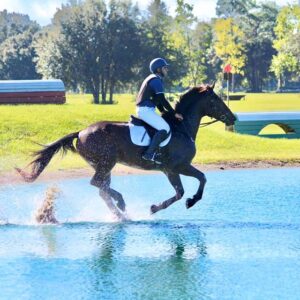
The equestrian team at my school was one of the most competitive teams and it became a dream of mine to join the team. On my journey to make it on the team I worked with a lot of horses ranging from Arabians to Warmbloods to Thoroughbreds. There were some good days and some bad. Once a horse bucked me off and my foot got stuck in the stirrup. He kept dragging me for a couple of yards before I got my foot out. After being in a hospital bed for a couple of days I went right back to ride with him. I was finally able to make it on the team in my last year at school. In Pakistan, I competed in sports like Tent Pegging, Sword Pegging, and freestyle Polo.
When I came to the US in 2018 to pursue my graduate studies, I was excited to find out that the University of Florida had an equestrian club! In Pakistan, equestrian sports are male dominant, but I didn’t know that it is a little opposite in the US. I joined the club at UF and decided to join the eventing team as it sounded the most exciting. When I first showed up to attend the club meeting, the room was filled with more than a hundred girls! I became nervous and walked down the room to take a seat in the farthest corner. My anxiety and nervousness went away when my team captain approached me and said, “Hey Muhammad, why don’t you come to sit with the Eventing team!” It was a nice gesture, and it made me feel welcomed and a part of the team!
It’s been two years since I have been on the UF Eventing Team and not for a single day have I felt uncomfortable for being an international from a different ethnic and cultural background and the only boy on the team. My teammates are the best people ever! Most of them are very advanced level ridders but they have never made me feel like I am a beginner. They always support me, boost my moral at competitions, help me tack up, walk the courses with me, guide me, and help me train. I feel blessed to be a part of this team and having some amazing teammates. The past two years were the most exciting two years of my life because of this team.
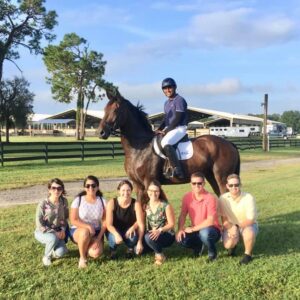
I am currently competing at the beginner novice level, but I didn’t know anything about eventing when I started two years ago. I think it would be an injustice if I did not mention the efforts of my awesome coach, Ashley Johnson. She is one of the best riders I have ever known and have had the privileged to train with. She has supported and trained me in my Eventing journey, and I aspire to be like her one day.
Eventing is a sport that I am passionate about, it excites me, and I want to learn and grow so that I can compete at advanced levels like my teammates. Just like any other sports, I believe that diversity and inclusion in equestrian sport are very important. The reason why I shared my journey with you is because it is an example of how the positive attitude of my team and coach toward diversity left a long-lasting impact on my life.
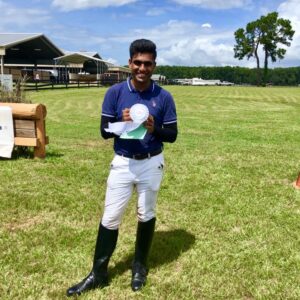
I believe that diversity and inclusion in equestrian sport provide us not just an opportunity to compete with people from all over the world, but it also gives us a chance to explore and understand people from different nations, cultures, ethnicities, and genders and their perspectives of equestrian sports. It also helps us learn what other equestrian sports exist in the world. Through diversity in equestrian sports, we can also learn and create rules and regulations beyond borders that can provide the safe and fair treatment of horses. It will help us to extend help to horses in need, save them from animal cruelty, and give them a second chance. It is through diversity and inclusion that we can end stereotypes in countries like Pakistan where equestrian sport is only for males.
Horses and equestrian sports have a very special place in my heart. It was through this sport that I got a chance to meet some amazing people and make some lifelong friendships. It was our common interest in the equestrian sport that helped me meet my now Fiancé. We have a dream to build a rehabilitation farm for OTTBs and introduce them to second careers. If I receive this scholarship award, I would use this money to adopt my first OTTB and train with him/her for our eventing career.
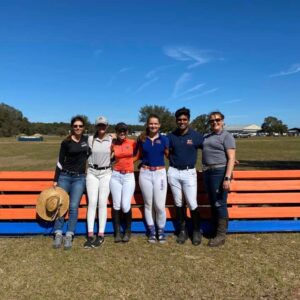
In the end, I would like to conclude by saying that through diversity and inclusion in the equestrian sport we can learn, grow and empathize with equestrian enthusiast from all over the world and use it as an asset to improve our sport by making it safer and more exciting for generations to come.
Regards,
Muhammad Shahroze Rehman
University of Florida







